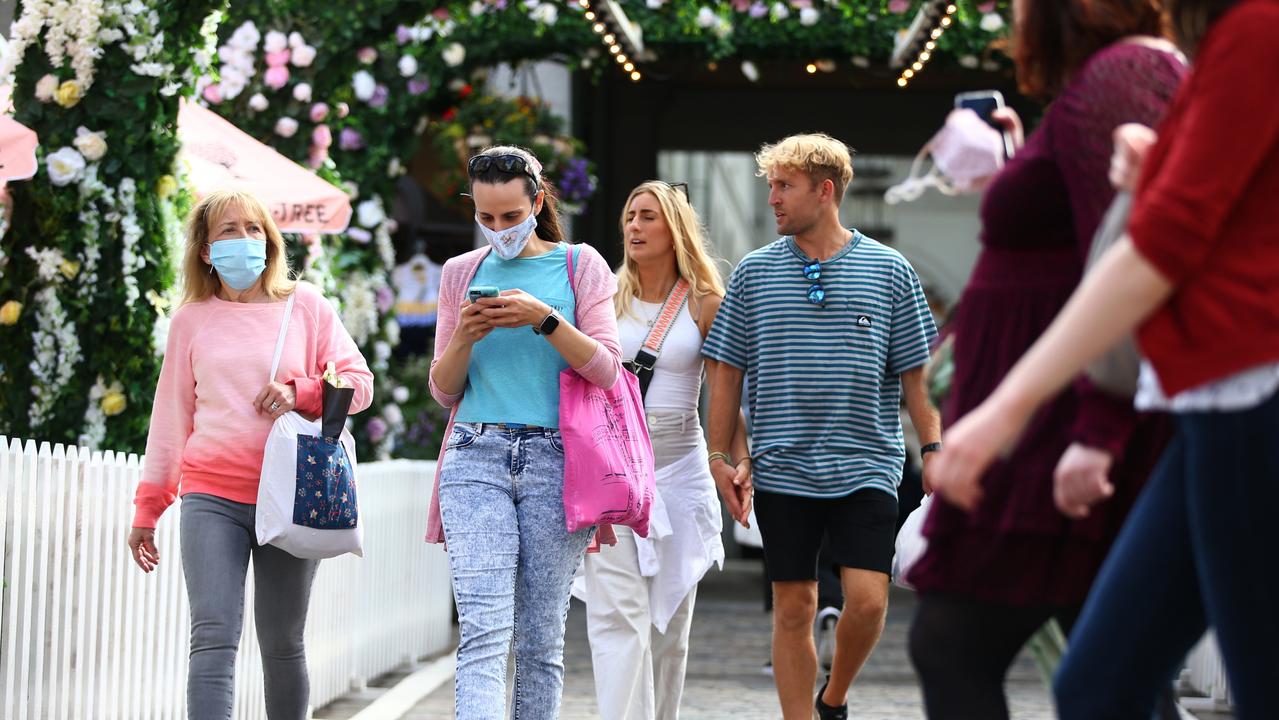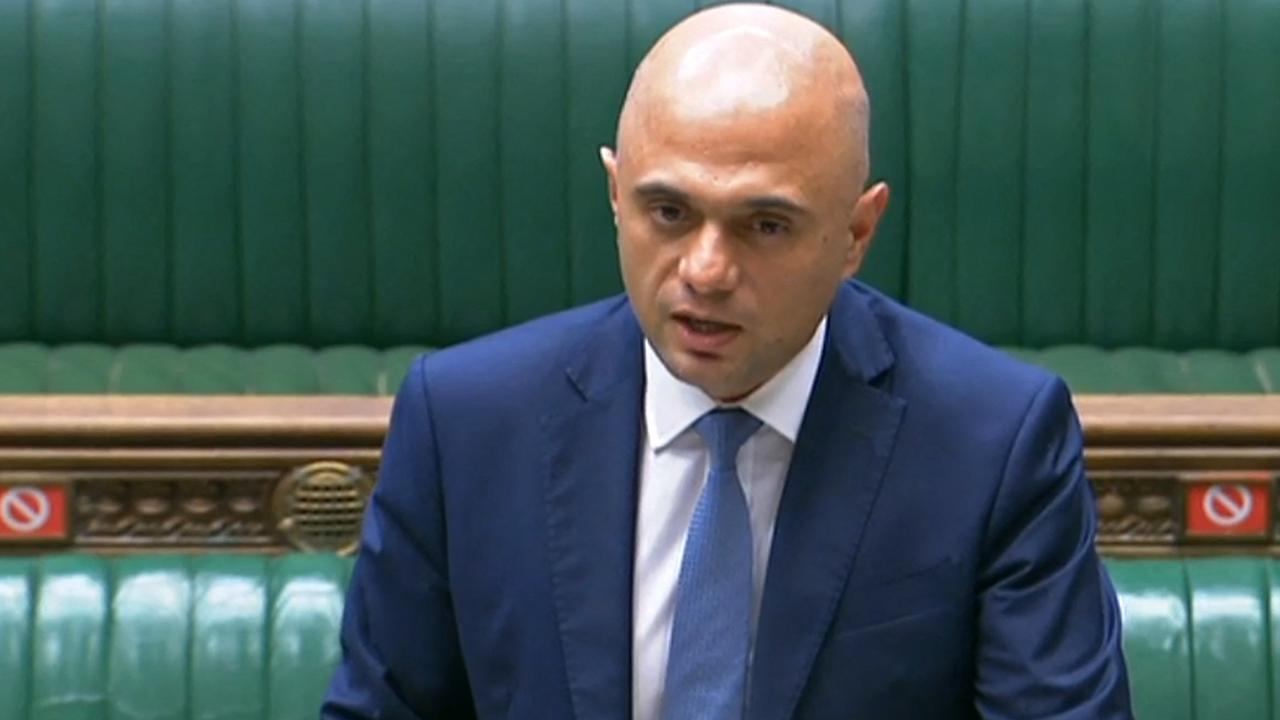UK expert claims easing Covid-19 restrictions will create ‘variant factories’
The UK is preparing to open up, with high vaccination rates keeping deaths low despite rising cases – but one expert has sounded a grim warning.
The UK is preparing to finally ease its Covid-19 restrictions, with the death toll remaining low despite cases continuing to rise thanks to a successful vaccination campaign.
But one expert has described plans to lift restrictions as “frightening”, while another warns that allowing community transmission to rise again will be like creating “variant factories”.
Cases have risen by 161 per cent over the past fortnight with more than 24,000 Brits testing positive to the Delta variant on Sunday, but only 15 fatalities reported, according to The Sun.
On Monday, British Prime Minister Boris Johnson is set to announce plans for so-called “Freedom Day” on July 19.
Housing Secretary Robert Jenrick told Sky News on Sunday that going forward, masks would be a “personal choice”.
“We now have to move into a different period where we learn to live with the virus, we take precautions and we as individuals take personal responsibility,” he said.
Mr Johnson last month delayed the country’s June 21 opening date by four weeks due to give people more time to get their second shot, amid a concerning spike in cases of the Delta variant.
Over the weekend, the UK reached a new milestone with more than half of the country now fully vaccinated.
There have been more than 33.6 million second doses given out, while nearly 45.3 million have received their first dose.

Writing in The Mail on Sunday, newly appointed Health Secretary Sajid Javid outlined his mission to “restore our freedoms and learn to live with Covid-19”.
Mr Javid said the government had to “be honest with people about the fact that we cannot eliminate” the virus, and that “cases are going to rise significantly”.
“I know many people will be cautious about the easing of restrictions – that’s completely understandable,” he wrote.
“But no date we choose will ever come without risk, so we have to take a broad and balanced view. We are going to have to learn to accept the existence of covid and find ways to cope with it – just as we already do with flu.”
Mr Javid said the health arguments for opening up were “equally compelling” as the economic ones.
“The pandemic has hit some groups disproportionately hard,” he wrote. “Rules that we have had to put in place have caused a shocking rise in domestic violence and a terrible impact on so many people’s mental health.”
Mr Javid conceded there would “always be the possibility that we have to deal with dangerous new variants that evade the vaccine”, but said the country had “many other crucial health challenges that we need to confront”.
He warned that reopening would put “enormous pressure” on the National Health Service.
“The steps we took saved countless lives but also led to the build-up of a vast ‘elective’ backlog – checks, appointments and treatments for all the less urgent, but often just as important, health issues,” he wrote.
“Because of the pandemic, we estimate that about seven million fewer people than normal came forward for healthcare.”

Professor Stephen Reicher, a member of the UK’s Scientific Advisory Group for Emergencies (SAGE) subcommittee advising on behavioural science, described Mr Javid’s comments as “frightening”.
“It is frightening to have a ‘Health’ Secretary who still thinks covid is flu,” tweeted Prof Reicher, who is a psychologist rather than an infectious disease expert.
“Who is unconcerned at levels of infection. Who doesn’t realise that those who do best for health also do best for the economy. Who wants to ditch all protections while only half of us are vaccinated.”
He continued, “Above all, it is frightening to have a ‘Health’ Secretary who wants to make all protections a matter of personal choice when the key message of the pandemic is ‘this isn’t an ‘I’ thing, it’s a ‘we’ thing’. Your behaviour affects my health. Get your head around the ‘we’ concept.”
Prof Reicher likened Covid-19 restrictions to speed limits, saying “we accept that I shouldn’t have the choice to act in ways that remove your choice, that I can’t drive as fast as I like in town”.
Professor Susan Michie, who also sits on the SAGE behavioural science subcommittee, weighed in as well. “Allowing community transmission to surge is like building new ‘variant factories’ at a very fast rate,” she tweeted.
A spokesman for the Department of Health told the Daily Mail, “The Health Secretary did not say covid was like flu. He said we need to learn to live with it and find ways to cope with it – in the same way as we do with flu.”

Writing for the British Medical Journal last week, Prof Reicher and Prof Michie argued that the government’s emphasis on personal responsibility had “dangerous consequences”.
“If people are to act responsibly they need their government to fulfil its own responsibilities to make safe behaviour possible,” they wrote.
The authors argued that placing the emphasis on what the public must do “takes the emphasis away from what the government must do”.
“Indeed, in equating a sense of individual responsibility with doing the right thing, the Prime Minister implies that the things he asks for – getting vaccinated, getting tested, social distancing, getting fresh air – are all a matter of individual choice,” they wrote.
“The fear is that when government talks about a ‘freedom day’ when all restrictions are lifted, it doesn’t mean that the virus has gone away, and it doesn’t mean that measures are not needed to prevent a resurgence.
“What it does mean is that the government is planning to withdraw all forms of support and abandon us to deal with the pandemic on our own.”
But other experts have welcomed the decision to relax restrictions.
“Population immunity is rapidly being achieved due to a combination of naturally acquired immunity through infection and vaccination,” Professor Allyson Pollock, clinical professor of public health at Newcastle University, told The Guardian.
“Unknowns are duration of immunity, impact of variants and who is at individual risk of reinfection or transmission. Good infection and outbreak control measures are still important at local level.”
She added, “However, mass testing and daily testing should be stopped, as testing of asymptomatic people is causing unnecessary harms with no evidence that it contributes to reducing transmission.”




